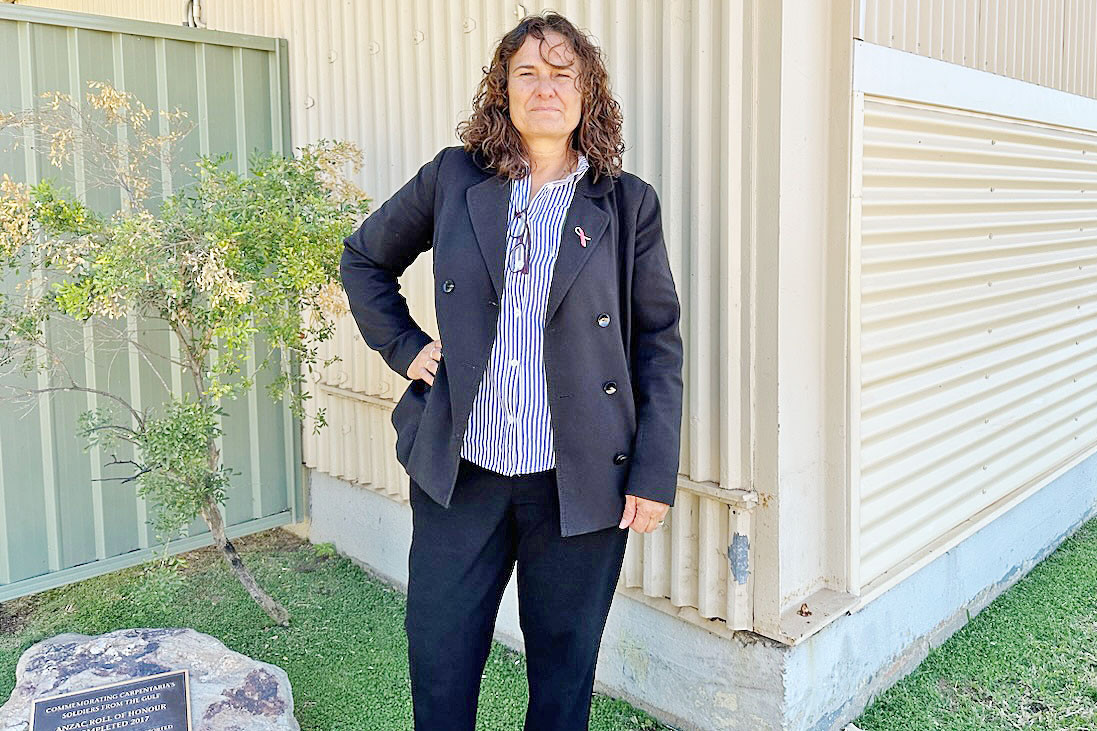General News
19 June, 2024
Patients putting home before health as heat turned up on NWHHS
A Traditional Owner from Normanton is pleading for dialysis services in her community.

Gidgee Healing recovery centre co-ordinator Leanne Edwards says Normanton residents have refused to undergo life-saving haemodialysis because they do not want to leave the community for treatment.
The Gkuthaarn and Kukatj woman has thrown her support behind a locally led push for a community dialysis unit at Normanton, claiming the lack of haemodialysis services in the town is having tragic consequences for Indigenous residents.
As reported by North West Weekly, new Carpentaria Shire councillor Cherie Schafer has spearheaded a campaign for haemodialysis services to be included in the new $40 million Normanton hospital development.
Cr Schafer will meet with North West Hospital and Health Service chief executive Sean Birgan in Mount Isa today to discuss data collected from a recent survey that revealed the need for increased renal services in Normanton.
Ms Edwards said the lack of haemodialysis options in Normanton was forcing some Indigenous residents to make painful decisions about their health care needs.
“I’ve had uncles and aunties in my family who have passed on because they refused to go and do the dialysis in another part of the state,” she said.
“They get the treatment for a while but then they come home and refuse to go back.
“They get over being stuck in the city. They don’t want to be away from the rest of the community. They get homesick. They get lonely.
“At the moment, people have to leave the community and they have to stay away almost for the rest of their lives because they cannot receive the treatment they need in Normanton.
“Having family around, not just immediate family, but also extended family, is a very important part of Indigenous culture.”
A 2022 study, published by BMC Health Services Research, found that Indigenous Australians forced to relocate to urban areas for treatment were less likely to attend dialysis appointments compared to patients who had access to services in their local community.
The study found there was increased pressure placed on remote medical services as a consequence of reduced appointment attendance because these Indigenous patients required more hospitalisations to treat infections and other associated illnesses compounded by missed dialysis sessions.
“Family and cultural responsibilities, coupled with distance and cost of remote travel often manifest in missed dialysis treatments in urban areas,” the report states.
“Patients maintain that care closer to home is more supportive of the health and wellbeing of individuals, which in turn facilitates more active engagement with treatment.”
Ms Edwards said she wrote a letter of support for the haemodialysis campaign on behalf of the Gkuthaarn and Kukatj Aboriginal Corporation, which was lodged with NWHHS at the same time Cr Schafer sent her survey results in April.
“The Gkuthaarn and Kukatj people are excited that Normanton will be receiving a new hospital and believe including access to local renal services will not only enhance health outcomes but also promote community engagement and empowerment, aligning with our shared goals of improving Indigenous health and well-being,” the letter states.
Ms Edwards said local dialysis services had been a long-held ambition for the Indigenous population at Normanton.
“We’ve been lobbying for quite a while to get this service in our community but we just get told we are too remote and there are no specialists nearby - we have just heard all these excuses before,” she said.
“They have dialysis services in the other communities near us, so why can’t we have it in our community?”
Mr Birgan told North West Weekly that he was not aware of patients refusing renal services due to a need to relocate away from Normanton.
However, he said NWHHS was aware of three patients from Normanton who have relocated to Cairns and Townsville to receive renal services.
“Balancing the need to provide care as close to home as possible with the responsibility to ensure safe treatment is challenging,” Mr Birgan said.
“The new Normanton Hospital will include three chairs designated for self-dialysis patients, with plans to potentially accommodate nurse-supported haemodialysis in the future. North West patients who choose peritoneal dialysis are supported to receive treatment at home whenever feasible, including two patients currently residing in Normanton.”
According to the Australian Institute of Health and Welfare, Indigenous Australians are 10 times more likely to be hospitalised for dialysis than non-Indigenous Australians.